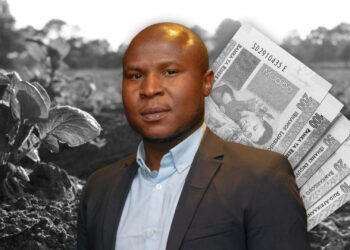Experts agree that finance minister Enoch Godongwana made a wise decision by not raising the sugar tax in his March budget, giving the industry a chance to pursue diversification and transformation. Higgins Mdluli, chairman of SA Canegrowers, explains why the government must create a supportive policy environment to drive economic growth, investment, and industry transformation.
South Africa’s economic future depends on fostering industries that can drive economic growth, create jobs, and contribute to national development. Yet, policies such as the health promotion levy (HPL, or sugar tax) undermine these objectives by stifling one of South Africa’s key agricultural sectors. Instead of burdening growers with the consequences of an ineffectual and job-killing tax, the government should be fully committed to supporting industry initiatives such as the Sugar Industry Value Chain Master Plan 2030 – a strategy designed to unlock growth, secure livelihoods, and promote sustainability in the sector.
The South African sugar industry has long been a vital economic contributor, supporting one million direct and indirect livelihoods. The industry spans farming, milling, refining, and manufacturing, and plays a crucial role in the rural economies of KwaZulu-Natal and Mpumalanga. However, since its introduction in 2018, the sugar tax has added severe financial pressure, exacerbating existing challenges such as rising input costs, global price volatility, and climate-related risks.
An independent study by Nedlac has shown that the sugar tax led to the loss of at least 16 000 jobs in its first year alone. Any increase or expansion of the sugar tax would repeat this economic devastation, and it is almost certainly small-scale growers who will be hit hardest.
Small-scale growers, who are key employers and economic drivers in rural economies, are more exposed to pressures on demand and price as they operate on already thin profit margins.
In the seven years since the introduction of the sugar tax, there has been no conclusive proof that it has addressed diabetes or obesity in any way. Yet the economic harm it creates has been clearly proven.
Finance minister Enoch Godongwana wisely did not raise the sugar tax, allowing the sugar industry to implement diversification and transformation plans.
The promise of value-added products
The Sugar Industry Value Chain Master Plan 2030 offers a constructive way forward. This strategic framework, developed through collaboration between government, industry stakeholders, and labour representatives, is designed to support diversification, sustainability, and long-term growth. Rather than restricting the industry’s potential through punitive taxes, the master plan provides a roadmap to expand production, invest in innovation, and explore new market opportunities.
One of the most promising aspects of the master plan is its focus on value-added products. The industry is already moving towards producing biofuels and sustainable aviation fuels (SAFs)– key sectors that align with South Africa’s broader economic and environmental goals.
Sugarcane is an incredibly versatile crop, and with the right investment and policy support, it can be the feedstock for bioethanol, which can be used to manufacture SAFs.
In the coming years, there will only be a growing demand for SAFs as international aviation regulations increasingly emphasise greener fuels. Should South Africa take up this opportunity, we can become a regional hub for SAFs, allowing international airlines a stable supplier in an already key hub for global air travel.
With the right investment, this can serve as a catalyst for economic transformation in South Africa. Countries such as Brazil and India have demonstrated the potential of SAFs and biofuels to reduce carbon emissions while creating thousands of jobs.
Related stories
- SA sugar industry remains fragile despite progress, says Mhlaba
- Sugar tax leaves bitter taste as rural communities suffer
A focus on small-scale growers
South Africa has the same opportunity, but we would need to enact policies that encourage rather than hinder growth.
With policy, incentives and other forms of government support, the private investment needed will surely follow. This could unlock completely new markets for sugar and sugarcane, allowing South African small-scale and large-scale growers an additional market for their product.
In this way, the master plan prioritises the revitalisation of rural economies. SA Canegrowers represents 24 000 small-scale and 1 200 large-scale growers. Ensuring that small-scale growers have a sustainable future demand for their product will not only keep them economically active but will benefit their communities.
Growers are often anchors in their communities, where employment opportunities are scarce. The income and social cohesion they bring to rural KwaZulu-Natal and Mpumalanga cannot be overstated.
Minister Godongwana’s decision to refrain from increasing the sugar tax was a positive step. However, further commitment is needed. The sugar industry requires cohesion between government departments, and commitment ranging from the department of agriculture to the department of trade, industry and competition.
Model for sustainable development
Recently, agriculture minister John Steenhuisen visited the sugar industry in KwaZulu-Natal. He emphasised the crucial role small-scale growers play in the industry and the economy and committed to continue to invest in their sustainability and growth.
Similarly, the Parliamentary Portfolio Committee for Trade, Industry and Competition visited the sugar industry last week for an update on diversification plans.
Such welcome engagements with the government help the sugar industry showcase the immense work they put into these projects – and hopefully showcase the need that an enabling policy environment should be enacted to attract investment, drive innovation, and expand its reach beyond traditional markets.
Instead of punitive taxation like the sugar tax, South Africa should look at targeted incentives to support sustainable agriculture and agro-processing.
The choice is clear: South Africa can either continue down the path of short-term revenue collection through harmful taxation or embrace a long-term strategy that promotes economic resilience and growth. The sugar industry has the potential to be a model for sustainable development, but only if it is supported by the right policies.
The Sugar Industry Value Chain Master Plan 2030 offers a blueprint for achieving this – now, it is up to the government to prioritise economic growth over policies that destroy jobs and livelihoods.
- Higgins Mdluli is the chairman of SA Canegrowers. The views and opinions expressed in this article are those of the author and do not necessarily reflect the views or positions of Food For Mzansi.
READ NEXT: SA sugar industry remains fragile despite progress, says Mhlaba
Sign up for Mzansi Today: Your daily take on the news and happenings from the agriculture value chain.
















